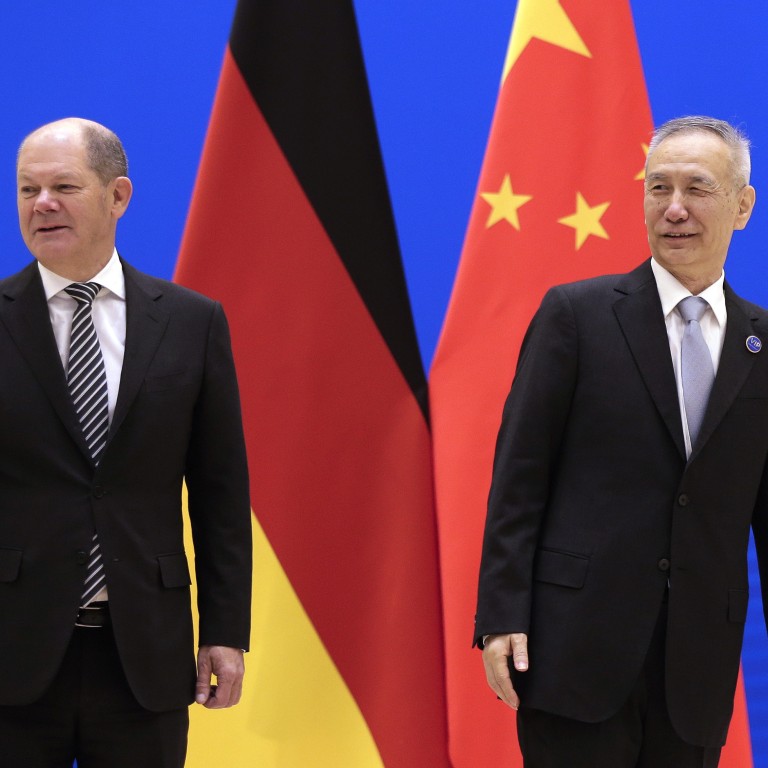
China warns off new German government over Taiwan, Hong Kong and Xinjiang
- Coalition agreement of Olaf Scholz’s incoming government signals willingness to challenge Beijing on sensitive topics
- Chinese foreign ministry urges Berlin to ‘continue its pragmatic China policy’
Chinese foreign ministry spokesman Zhao Lijian on Wednesday said China attached great importance to its all-round strategic partnership with Germany, noting next year’s 50th anniversary of official ties.
“I hope that the new German government will continue its pragmatic China policy and meet China halfway,” he said.
The coalition agreement said that Germany wanted to “develop our relations with China in the dimensions of partnership, shaping competition and system rivalry”, and would seek China’s cooperation “on the basis of human rights” where possible.
Describing Beijing as a “systemic rival”, it called for a “a comprehensive China strategy in Germany within the framework of the common EU-China policy”.
Chinese sanctions leave investment deal with EU on the rocks
It urged China to “play a responsible role for peace and stability in its neighbourhood”, and said Germany was “committed to ensuring that territorial disputes in the South and East China seas are settled on the basis of international law of the sea”.
Noah Barkin, managing editor with Rhodium Group’s China practice, called the document’s language on China “the strongest ever to appear in a German coalition agreement, reflecting growing concerns about the direction of China under Xi Jinping”.
The mentions of issues considered to be “red lines” by the ruling Chinese Communist Party “shows a readiness to speak more openly about differences with Beijing”, Barkin added.
Cui Hongjian, director of European studies at the China Institute of International Studies, a think tank affiliated with the foreign ministry, said bilateral tensions looked set to rise after the new German government takes office.
“The coalition pact is much more assertive on China than Germany’s existing policy and is particularly critical on several hotspot issues,” he said. “In the short term, differences and rifts between China and Germany will be on the rise.”
Ding Chun, director of the Centre for European Studies at Shanghai’s Fudan University, also voiced concerns about relations.
Given the Greens’ tough stance on China and the prevailing negative perceptions of China in Europe, he said the new German government would be likely to cut its economic reliance on China and challenge Beijing on trade, human rights and other issues.
More Taiwan names on blacklist to feel ‘real regret’, Beijing warns
“It’s also worth noting that diplomatic pressure from Washington would play a key role in China’s relations with Germany,” he said. “Compared with the [16-year] Merkel era, bilateral ties are likely to turn sour. But I don’t think it would become as confrontational as US-China ties.”
Additional reporting by Catherine Wong



